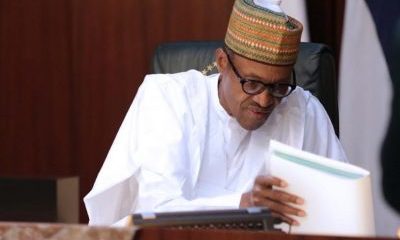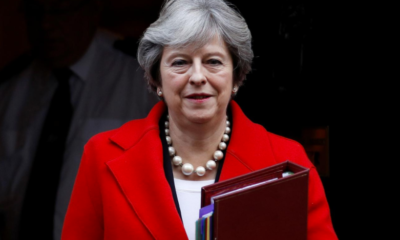Nigerian Newspapers
Northern Senators, Reps okay deal on PIB
• Independent agency to explore oil in the North
• NNPC to lose oil exploration roles
• Uncertainty trails corporation, Chinese $ 28.5b refinery projects
A MAJOR deal that may pave the way for the passage of the Petroleum Industry Bill (PIB) has been struck in the two chambers of the National Assembly in favour of legislators from the northern part of the country.
Besides, it was learnt at the weekend that the proposed construction of three refineries in Lagos, Kogi and Bayelsa states by the China State Construction Engineering Corporation (CSCEC) Limited and Nigerian National Petroleum Corporation (NNPC) is facing financial challenges.
The new PIB deal which drew support from 58 members of the Northern Senators’ Forum and Members of the House of Representatives from the North involved an expansion of the bill to provide for the creation of an independent agency charged with the responsibility of vigorously looking out for petroleum oil in the North and other parts of the country beyond the Niger Delta region.
A key problem that has been confronting the PIB in the two chambers is the suspicion that the legislative document was scripted in favour of oil-producing regions in the Niger Delta, a belief that had created problems for the bill particularly among senators and members of the House of Representatives from the Northern part of the country.
The clause that sought to give 10 per cent of profits in oil business to oil-producing communities had equally attracted vehement opposition from Northern legislators.
A lawmaker from the North Eastern part of the country who has been part of the discussion that led to the brokering of the deal said: “The crux of the deal is that with increased oil exploration activities in other parts of the country particularly in the North, such largesse for oil-producing communities would attract less criticism since it would eventually be extended to other areas where oil is found.”
At the end of several meetings and consultations on how the PIB could be saved and passed without hurting feelings, it was resolved among Northern legislators in the two chambers that a separate bill be sponsored to make provision for extensive exploration of oil in the Chad Basin, Bauchi Basin, Sokoto Rima River Basin, Benue River Basin and other parts of the North where petroleum was suspected to be existing in commercial quantity.
A key member of the Northern Senators’ Forum was tipped to sponsor the Oil Exploration Agency Bill, which would eventually be merged with the PIB that was sent to the Senate by President Goodluck Jonathan.
The Guardian learnt that the senator tipped to sponsor the Oil Exploration Agency Bill had already submitted a draft copy to the Senate Committee on Rules and Business for it to be properly scheduled for first reading after the Easter break.
Senate President David Mark, had while inaugurating the Senate joint-committee that would process the bill last week hinted that it would give priority attention to oil exploration in the North.
“We also want to explore oil in some other parts of the country and not only in the Niger Delta as we are doing now.
“There is no reason why we can’t find oil in the Northern part of the country. The PIB bill is a bill to unite the country and not divide it. It will open up the industry so that we can attract new investors,” Mark stated.
In the House of Representatives, a Northern legislator had already sponsored a similar bill, which had been consolidated with the PIB and referred to a committee for further legislative work.
The House version of the Oil Exploration Bill was sponsored by Kaka Kyari Gujbawu (PDP, Bornu State).
It is titled “A Bill for an Act to establish the National New Frontier Exploration Agency, for the purpose of exploration and production of oil and gas in the frontier of Chad Basin, Dahomey Basin, Imo Basin, Benue Trough, Bauchi Basin and Sokoto Basin and for other matters connected therewith.”
Gujbawu told The Guardian that the absence of exploration in other parts of the country was making the country to lose a huge revenue, adding that the Nigerian National Petroleum Corporation (NNPC) was already over-loaded with so many responsibilities that it had little time to devote to oil exploration.
He said: “My understanding is that in the Chad Basin, the Niger Republic has already explored oil and has started selling oil, the same with Chad Republic. As at last year, from available information, Chad Republic has shipped its 111th lots of crude oil to the market.
“Chinese companies are assisting Chad and Niger and they started exploration activities on their side of the basin in less than a decade ago and they have succeeded. Why have we not succeeded?”
“In the Dahomey Basin, today, Ghana has started exploration and is selling crude to the international market. We have parts of the Dahomey basin in Lagos and Ogun states. Nigeria is yet to start exploration on those sides.
“So, we feel that the NNPC’s activities in the Niger Delta are so enormous that its hands are full that they do not have much time or resources to commit to the other basins. And people like me and others feel that there is the need for the government to establish a robust, autonomous oil exploration company to cater for the exploration of oil and gas in the inland basins in the other five zones of the country, hence my bill,” Gujbawu said.
In a bid to expand production capacities and reduce the nation’s dependence on imported oil and gas products, the NNPC signed a Memorandum of Understanding (MoU) for the construction of three Greenfield refineries and a petrochemical plant estimated to cost $ 28.5 billion by the CSCEC Limited in 2010.
Three years after the MoU was signed, the project is yet to scale to the next stage, as CSCEC Limited is yet to come up with a concrete plan for the financing of the project.
The refineries, which were supposed to be located in Lekki Free Trade Zone, Lagos; Bayelsa and Kogi states respectively were expected to refine a total of 750,000 barrels per day of the nation’s crude oil.
The project was expected to take a minimum of $ 28.5 billion with CSCEC contributing 80 per cent of the $ 11.3 billion equity finance through the Industrial and Commercial of China.
The Guardian learnt at the weekend that the Chinese firm was not able to get the Federal Government’s commitment to issue a sovereign guarantee on the loan for financing from Industrial and Commercial Bank of China.
Nigeria’s oil sector is oriented largely towards the export of crude oil, with the country’s refineries hardly in a position to meet the local demand for refined petroleum products.
A more substantial promise came in 2010, when NNPC and CSCEC signed a Memorandum of Understanding (MoU) for a $ 28.5 billion project to construct three refineries, a well as a petrochemical plants.
The refineries, which were to be situated in the Lagos Lekki Free Trade Zone, Bayelsa and Kogi states, were expected to begin in 2017 and have a capacity to produce 250,000 bpd each.
It was learnt that plans were subsequently scaled back, reducing the total to 400,000 bpd, that is 200,000 for Lagos and 100,000 bpd each for the other two.
The Industrial and Commercial Bank of China was to provide 80 per cent of the $ 11.3 billion equity finance, with NNPC supplying the remainder. Construction was initially set to begin in May 2011, but the date was moved to July 2012.
A top official of NNPC told The Guardian yesterday that CSCEC was still talking with the corporation on the project.
According to him, though a MoU was signed between CSCEC and NNPC, an agreement was not reached concerning the financing of the project and they were to furnish the corporation on how to fund it.
He disclosed that the Chinese firm demanded a sovereign guarantee, which NNPC refused to grant the firm, and that this was one of the reasons for the delay of the project.
He stated: “When we signed the MoU in 2010, the Chinese firm was to get back to us on how to finance it. They later came with the demand for sovereign guarantee but we refused to grant their request. This is because we believe that both parties should be ready to either gain or lose. We told them the Federal Government would provide an enabling environment for them to operate.
“They also asked for equity swap, and we were not able to reach a concrete agreement with the Chinese firm.
“But NNPC had approached the governors of the states, which the refineries were expected to be sited. The Lagos State governor gave us land to build the refinery. The Bayelsa State government also made land available to us. We could not reach an agreement with the Kogi State government concerning the issue of land.”
————————————————————————————————————————-
Posted in Nigerian Newspapers. A DisNaija.Com network.
Source: Guardian Newspaper
DisNaija.Com publishes regular posts on Nigeria News, Nigerian Newspapers, Online Nigeria Gist.
Follow us on Twitter and Facebook.
Your Opinion Counts. Be sure To Leave A Comment, If You Have Any.
Please Like, Share or Tweet. Your Support Is Appreciated.

This Day
Military, Police Ring Abuja to Forestall Boko Haram Attack
•Deploy more personnel as army chief vows to wipe out terror group
•Security beefed up at N’Assembly
Deji Elumoye and Kingsley Nwezeh in Abuja
Abuja, Nigeria’s seat of power, is under a massive security cordon following threats of attacks by insurgents and the increasing wave of banditry in the contiguous states of Kaduna, Kogi, Nasarawa and Niger States, THISDAY’s investigation has revealed.
There has been a wave of kidnappings in the outskirts of the federal capital, notably Pegi, Tuganmaje and Kuje among others, which the police have battled in recent times.
The security situation in and around the Federal Capital Territory (FCT) was heightened by the pronouncement of the Niger State Governor, Mr. Sani Bello, that Boko Haram fighters who he said sacked 50 villages in the state and hoisted the terror group’s flag, were about two hours drive away from the FCT.
Security has also been beefed up at the National Assembly as operatives, yesterday, thoroughly screened every vehicle approaching the National Assembly complex in Abuja.
The deteriorating security situation nationwide prompted the National Chairman of the Peoples Democratic Party (PDP), Prince Uche Secondus, to warn that the 2023 general election may not hold, demanding the declaration of a state of emergency as well as the convocation of a national conference.
However, the Chief of Army Staff, Lt. Gen. Ibrahim Attahiru, yesterday restated the Nigerian Army’s determination to annihilate Boko Haram.
But the Governor of Katsina State, Hon. Bello Masari, cautioned against declaring a state of emergency, saying doing so isn’t the solution to combat the security challenges facing the country.
The security of the nation’s airports was also in focus yesterday as the Office of the National Security Adviser (ONSA) said there was no threat to them.
THISDAY’s investigations showed increased presence of troops, police, Nigerian Security and Civil Defence Corps (NSCDC) personnel and intelligence operatives at the three strategic entrances to the city notably, Keffi, Zuba and Gwagwalada.
More checkpoints were also mounted around Gwagwalada and Keffi.
THISDAY also observed increased intelligence deployment at the entrance and the borders of FCT with contiguous states.
Beyond the borders, there were more deployments and police patrols inside the city and increased intelligence deployments as well.
Security sources told THISDAY: “There are deployments here and there but they are routine. Alertness is key to a secure environment.”
It was also learnt that security agencies were involved in frenzied meetings throughout yesterday.
The meetings, coordinated by the office of the Chief of Defence Staff under the new joint operational strategy of the armed forces, were aimed at coordinating a joint response to possible threats of attack to the FCT.
“I understand the security teams have been meeting for some days now and if you look around you, you will notice that there are increasing patrols and numbers of security personnel. The threats are not been taken lightly,” a source said.
National Assembly workers, lawmakers and visitors also had a harrowing experience accessing the legislative complex due to heightened security in the area.
Security operatives thoroughly screened every vehicle approaching the National Assembly complex in Abuja, impeding both human and vehicular traffic.
The Sergeant-at-arm of the National Assembly and other security agencies supervised the operations, leading to huge traffic build-up inside the complex.
Legislative staff, visitors and lawmakers were seen patiently waiting for their cars to be searched so that they could go ahead with the business of the day.
Some staff and visitors at some point got tired of waiting and were seen alighting from their cars to trek from the gate to the complex.
Meanwhile, the ONSA has said there is no threat to the nation’s airports.
A statement by the Head of Strategic Communication, Mr. Zachari Usman, said the reports of threats to the airports were an internal correspondence of security threat assessment misconstrued as security threat to the airports.
PDP Demands State of Emergency
In a related development, the PDP National Chairman, Prince Uche Secondus, yesterday demanded the declaration of a state of emergency, warning that the 2023 general election might not hold if the federal government failed to tackle insecurity.
He called on the federal government to summon a national conference to address the spike in insecurity.
Secondus added that the national caucus of the party will meet today to discuss the state of the nation.
Addressing members of the National Executive Committee (NEC) in Abuja, Secondus said: “We are worried Abuja is not even safe. It is no longer politics. We got alert of plots to bomb and burn down our airports.
“We urge the federal government to declare a national state of emergency in security. There is the need to call a national conference to discuss the insecurity in the country.
“There may not be any election in 2023 in Nigeria due to insecurity. This government must listen to the people. The Buhari government should call a national confab to discuss security and state of the nation. It is no longer politics. This time we are not playing politics. Let’s keep politics aside and move the nation forward.”
He said the country had been grounded, regretting that there had been no matching response from the federal government.
Secondus said in the past, terrorism in the North was confined to the North-east, but with the report of Boko Haram occupying villages in Niger State, terrorism had spread to the North-central
“Herdsmen are also menacing in the West; gunmen causing havoc in the East; and the militants in the South; all killing, looting, raping, maiming and burning down homes. The situation is bad; Nigerians all over are living in fear,” he said.
The Senate Minority Leader, Senator Enyinnaya Abaribe, said the problem of Nigeria was outside of the PDP headquarters, while pledging the support of the Senate to the declaration of state of emergency in security.
Abaribe said he deliberately decided not to speak on the floor of the Senate but to allow the APC senators to speak so as to avoid being accused of giving a partisan colouration to the issue of insecurity.
He stated that only electoral reforms would give victory to the opposition party in the 2023 general election and ensure a democratic defeat of the APC-led federal government.
Also, the Minority Leader of the House of Representatives, Hon. Ndudi Elumelu, commended the NEC and the PDP leadership for their collective efforts at resolving the House leadership crisis.
The NEC meeting adopted the position of Secondus, calling on the federal government to convoke a national conference to discuss the state of insecurity in the country, according to a communiqué read by the National Publicity Secretary, Mr. Kola Ologbondiyan.
Army Chief Vows to Wipe Out Boko Haram
The army yesterday reiterated its commitment to wipe out Boko Haram.
Chief of Army Staff (COAS), Lt. Gen. Ibrahim Attahiru, told reporters in Maiduguri, Borno State that Boko Haram had been defeated in many encounters and would continue to be defeated until it’s annihilated from Nigeria.
“We will take on Boko Haram decisively, and we are committed to the focus of the operations, which is the total annihilation of Boko Haram from Nigeria,” he said.
The COAS, who was visiting the headquarters of Operation Lafiya Dole in Maiduguri for the fifth time since his appointment four months ago, said the visit was to boost the morale of the troops, reassure them and listen to any issues affecting them.
Earlier, the Theatre Commander of Operation Lafiya Dole, Maj. Gen. Farouq Yahaya, lauded the visit, which he said had continued to boost the morale of the troops.
“We are honoured, we are grateful, we are encouraged by those visits. You provided us guidance, logistics and other things we required. We are most grateful for those visits,” Yahaya said.
State of Emergency Won’t Solve Security Challenges, Says Masari
Katsina State Governor, Hon. Aminu Masari, has, however, said declaration of a state of emergency won’t solve the security challenges facing the nation.
Masari, who spoke yesterday with journalists after meeting with the Chief of Staff to the President, Prof. Ibrahim Gambari at the State House, Abuja stated that he was against the recent call by the House of Representatives for the declaration of a state of emergency in the security sector as it would not solve the problem.
According to him, declaring a state of emergency will not achieve the desired effect as the security structure and personnel to be used to execute the emergency are already overstretched in a bid to safeguard lives and property.
Sourced From: THISDAYLIVE
Tribune
Nigeria records 55 new COVID-19 infections, total now 165,110
Tribune Online
Nigeria records 55 new COVID-19 infections, total now 165,110
The Nigeria Centre for Disease Control (NCDC) has recorded 62 new cases of COVID-19, bringing the total number of infections in the country to 165,110. The NCDC disclosed this on its official Twitter handle on Friday. “55 new cases of #COVID19Nigeria; Lagos-21, Yobe-19, Ogun-6, Akwa Ibom-3, Kaduna-2, Plateau-2, FCT-1, Rivers-1.” YOU SHOULD NOT MISS THESE HEADLINES FROM NIGERIAN TRIBUNE COVID-19: Nigeria Recorded […]
Nigeria records 55 new COVID-19 infections, total now 165,110
Tribune Online
Sourced From: Tribune Online
Vanguard
Attacks on S’East: We must explore all options of negotiation — Stakeholders urge Igbo

By Olasunkanmi Akoni
The people of the South East region have been urged to explore the power of negotiation and mutual settlement in the face of ongoing killings and security challenges in the zone because the east can not afford another war at present.
Stakeholders from the South-East geo-political zone made the remark on Thursday, at the unveiling of the book, “Igbo, 50 years after Biafra,” written by Special Adviser to Lagos State Governor Babajide Sanwo-Olu on Drainage Services, Joe Igbokwe, held at Ikeja G.R.A.
Speaking at the unveiling of the book, the chairman of the occasion, Mr. Cutis Adigba,
urged the people of the South-East to learn to build bridges across the country, so that they can realise their ambition of producing the next president of Nigeria.
Adigba urged leaders from the zone to discourage the move and agitation by some youths in the South East to go to war and secede out of Nigeria.
Also read: Banditry: Disregard viral video, Niger State gov’t urges residents
He said that Igbo have always found it difficult to rule Nigeria because they refused to build bridges across the six geo-political zones that made up Nigeria.
While describing the agitation as uncalled for, Adigba noted that after two decades that Nigeria returned to civil rule, the Igbo has predominantly identified with only one political party.
He maintained that remaining in one party can not advance the cause of the people of South East and cannot make them realise their objective of producing an Igbo man as president.
He maintained that the publisher of the book, Igbokwe played politics outside his state, so that the Igbo race can be integrated with one another race.
Adigba said the failure of the Igbo to reintegrate with other ethnic nationalities politically was responsible for the retrogression of the race in Nigerian politics.
Igbokwe, also addressing guests on the occasion, maintained that the Igbo are not advancing politically because they refused to be integrated into National politics, lamenting that, despite their success in business, they are not successful in playing politics at the national level.
Corroborating Dimgba, Igbokwe noted that there was the need for the Igbo people to stand up and build bridges so that their objective of producing the next president of Nigeria could be realised.
According to him: “I have decided to raise my voice, I hope my people will hear me while trying to quell the effect of the war, our people are spoiling for another war, mayhem is being unleashed in Igbo land, and there is palpable fear.
“Those who could speak have lost their voice, mindful of the consequences of their actions, I am calling on all Igbo leaders to speak up because all actions carry consequences, consequences of the silence will be too dastardly to sustain.
“Those silently supporting the wild wind should be careful or else they hand over to their children,” he said.
Igbokwe urged those spoiling for war to jettison their plan and embrace dialogue, urging them to learn from the South West region that despite the challenges faced after the annulment of the June 12, 1993, election, they did not go to war, and the region had the opportunity of producing two of her sons for presidential position in 1999.
“You have to build bridges to become president of Nigeria, but it is unfortunate the Igbo are burning bridges.”
Speaking at the event, Chief Uche Dimgba who is the coordinator of Igbo in All Progressives Congress, APC in Lagos, described Igbokwe as “a Frank, fearless and reliable leader, who based his views on issues and stand by his opinions, and we the Igbo have confidence in him and believe he can lead us aright.”
“He is a leader we Igbo believe in and we will follow him. If he can serve all the governors produced in Lagos State since 1999, he is a better man to follow because he possesses all the experience that can be of benefit to Igbo both at home and in the diaspora.”
The post Attacks on S’East: We must explore all options of negotiation — Stakeholders urge Igbo appeared first on Vanguard News.
Sourced From: Vanguard News
Premium Times
Insecurity: Lagos bans occupation of abandoned buildings
The government said that no worker should stay back beyond 6:00 p.m. within premises of buildings undergoing construction.
The post Insecurity: Lagos bans occupation of abandoned buildings appeared first on Premium Times Nigeria.
Sourced From: Premium Times Nigeria






















